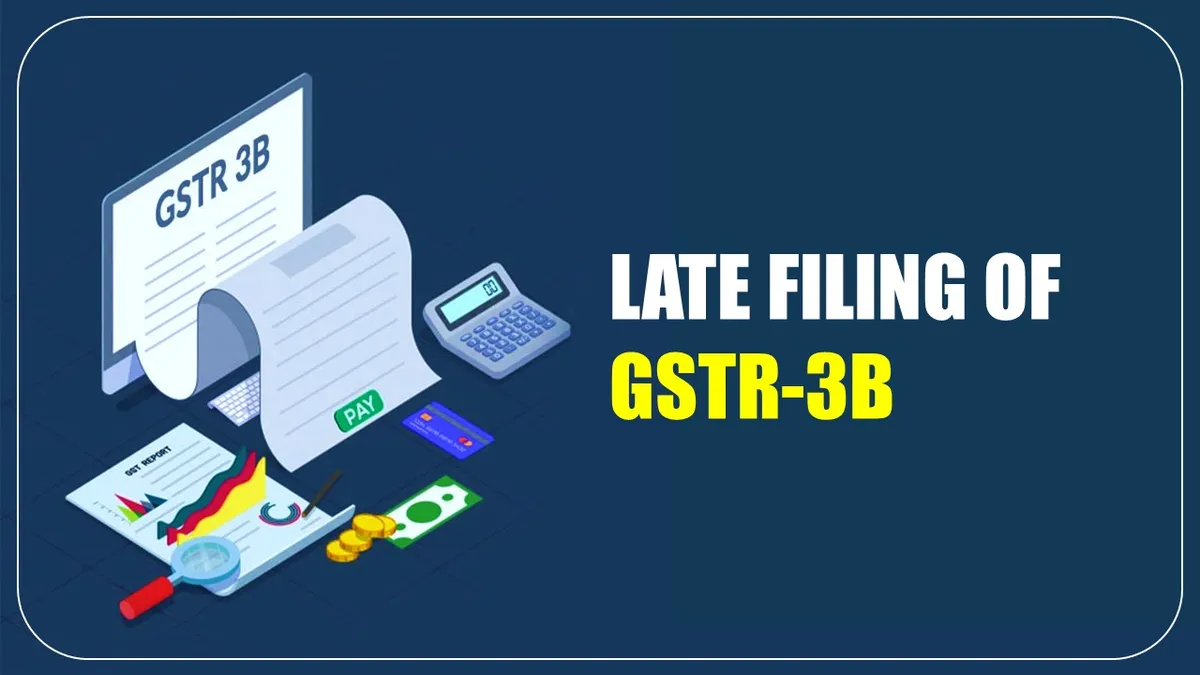
Tax compliance is a crucial aspect of any business operation, and in the realm of Goods and Services Tax (GST) in India, adherence to filing deadlines is paramount. GSTR 3B, a summary GST return, requires meticulous attention from taxpayers, ensuring accurate reporting of sales, input tax credit (ITC) claimed, and net tax payable. However, missing deadlines can lead to late fees and other penalties, which every taxpayer should be well-versed in.
Late Fees Structure
Late fees for GSTR 3B filings vary depending on whether it’s a normal return or a nil return. For normal returns, the late fee is ₹ 50 per day, whereas for nil returns, it’s ₹ 20 per day. This daily late fee accrues until the return is filed, making it imperative for businesses to adhere to deadlines to avoid unnecessary financial burdens.
Example Scenario
To illustrate, if the due date for filing GSTR 3B is the 20th of a month and a business files it on the 25th, they would incur a late fee for five days. For a normal return, the late fee would amount to 5 days multiplied by ₹ 50, totaling ₹ 250. Similarly, for a nil return, the late fee would be calculated accordingly.
Maximum Late Fee
There’s a maximum late fee cap based on the annual turnover of the taxpayer. For turnover less than ₹ 1.5 Crores, the late fee ranges from ₹ 1000 to ₹ 5000 per return, depending on specific slabs. For nil return filing, the maximum late fee is capped at ₹ 500 per return.
Understanding Due Dates
The due date for filing GSTR 3B depends on the taxpayer’s annual turnover in the previous year. For turnovers less than ₹ 5 Crores, the deadline is the 20th of the subsequent month, while for turnovers equal to or exceeding ₹ 5 Crores, it’s the 22nd of the subsequent month.
Consequences of Non-Compliance
Failure to file GSTR 3B within the stipulated deadlines incurs not only late fees but also interest charges on late tax payments. Interest rates vary depending on the type of delay, with rates ranging from 18% to 24% per annum.
Conclusion
Navigating the intricacies of GST filings, particularly GSTR 3B, demands careful attention and adherence to deadlines. Understanding the late fees structure, maximum caps, due dates, and consequences of non-compliance is crucial for every taxpayer. Utilizing efficient GST software can streamline the filing process, helping businesses avoid penalties and maintain compliance with GST regulations. By staying informed and proactive, businesses can mitigate risks and ensure smooth GST operations.
This article is only a knowledge-sharing initiative and is based on the Relevant Provisions as applicable and as per the information existing at the time of the preparation. In no event, RMPS & Co. or the Author or any other persons be liable for any direct and indirect result from this Article or any inadvertent omission of the provisions, update, etc if any.
Published on: April 2, 2024
